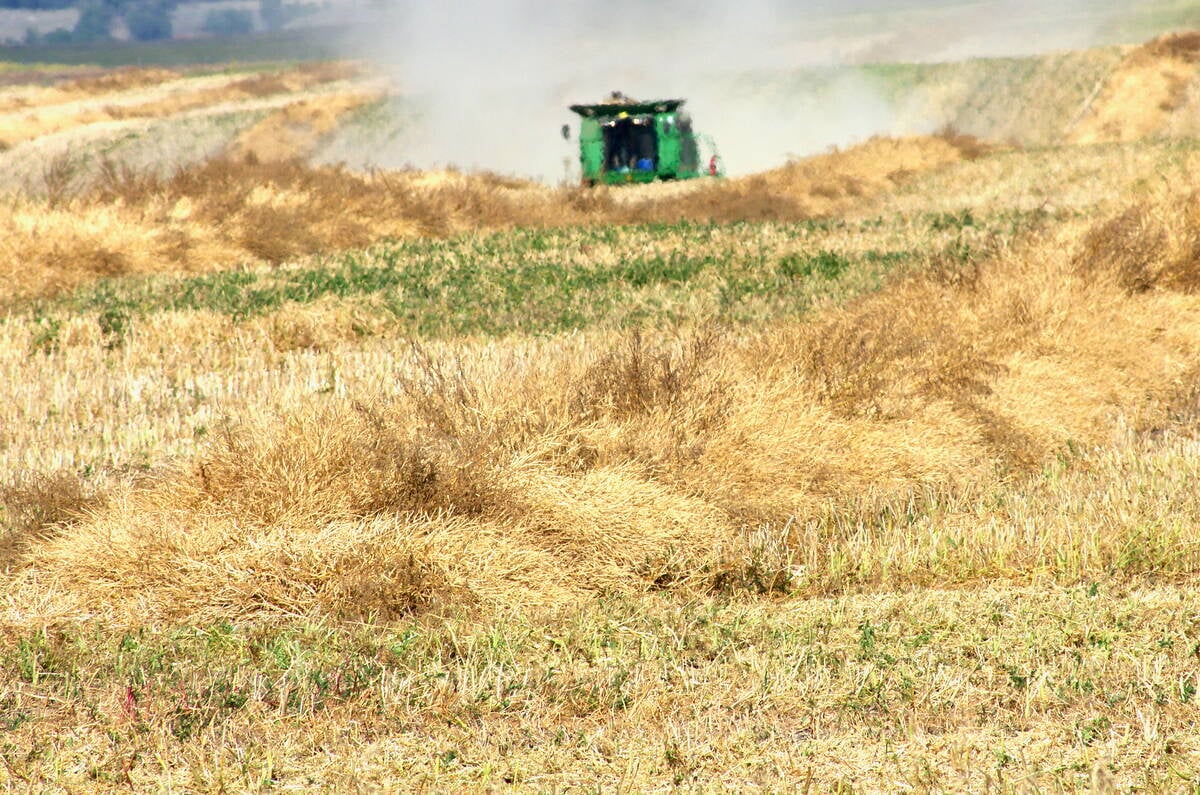MAYFAIR, Sask. – Few people can pin down the moment when inspiration strikes them.
Vivian Saccucci can.
It was 5 a.m. four years ago and she was milking cows in the family dairy barn in northwestern Saskatchewan.
“The cow had been laying with her tail in the gutter and she swatted me across the lips with this juicy tail. A big light bulb came on – if you want something new, you’ve got to change.”
Saccucci still grimaces at the manure-laden low point of the milking routine the family had started in 1978.
Read Also

Manitoba searches for Plan B on canola oil exports
A new report explores Manitoba’s current canola oil trade and possible alternative markets to the U.S.
“I realized I was missing people in my life. I needed more socializing.”
But Saccucci also wanted to do something from her farm home so she could be there for her husband and four daughters. It had to be fun, and it had to exceed the dairy’s six-figure income.
The Saccuccis had built a 110-head herd of registered Holsteins on their farm in the wooded hilly region about 100 kilometres from North Battleford. Their 46 milking cows were in the top five percent for production in Saskatchewan. It would be difficult to exchange financial success for freedom.
Saccucci’s quest for relief from drudgery started with lots of reading and talking. Her interest in natural food led her to look at a health supplement product from an American company called Mannatech.
A girlfriend had told her about the company and Saccucci invested $1,500 in a starter kit. She began traveling the countryside, meeting people and enrolling them in the program.
“Lyle and the kids were not supportive when I started my business,” she recalls.
But she resolved not to quit without giving it a strenuous effort. Within two months she made back her initial investment.
And within two years she was earning enough money from network marketing to justify selling the dairy herd.
“I don’t sell, I educate.”
The products are said to support natural hormone production and help the body’s cells and immune system work normally. Saccucci said North America has the best medical technology, but little has been developed for prevention or to deal with chronic illness.
Her company has testimonials from people about improved conditions, more energy and reduced aging, plus the science to validate it.
Saccucci has Mannatech distributors throughout Canada, the United States, Australia and Japan. She is in the top ranks of the company’s associates. She spends hours every day talking to people on the phone.
Wearing a hands-free headset, she does business while weeding the garden, baking bread or cleaning the house.
It wasn’t always so easy. The first two years required many hours of driving across the Prairies, meeting people and talking at conferences. Her husband and daughters had to do the cooking, cleaning and laundry, and they weren’t sure about her new path.
“It was hard on me, but the joy on the other side, of helping change people’s lives physically and emotionally,” made it worth it, she said.
“God and I built this business,” said Saccucci, who credits her husband for holding the farm and kids together while she traveled. Proof of her success in convincing her family is that they all take Mannatech products daily.
Saccucci carried part of her old life into Mannatech circles, where she is known as the cow lady. When she received her first award from the company, she wore her barn coveralls over her suit to highlight her point that success can be reached from any location as long as a person is motivated.
For her next appearance on the stage the following year, she wore black and white spotted leggings and arm bands.
There are no more cows on the Saccucci farm. No dogs, no chickens, no pigs. Saccucci wanted the freedom from routine to include her husband as well. It is ironic that she had to talk her husband into starting a dairy herd when they first married. Two decades later, she was trying to talk him out of it. The herd was sold two years ago.
However, it is still a grain farm. Lyle plants barley, canola and wheat on 1,400 acres of land that is semi-organic.
Saccucci said other farm families who feel they’re in a rut, whether through work or money stress, should take a big step. Complaining about a situation doesn’t change anything.
“Do your homework and don’t depend on someone else,” she said.
“If what you’re doing isn’t working, then find some other way to stay on the farm.”
She said people need to figure out their mission in life. She has hers: “To make a positive difference in the life of everybody I meet.”














